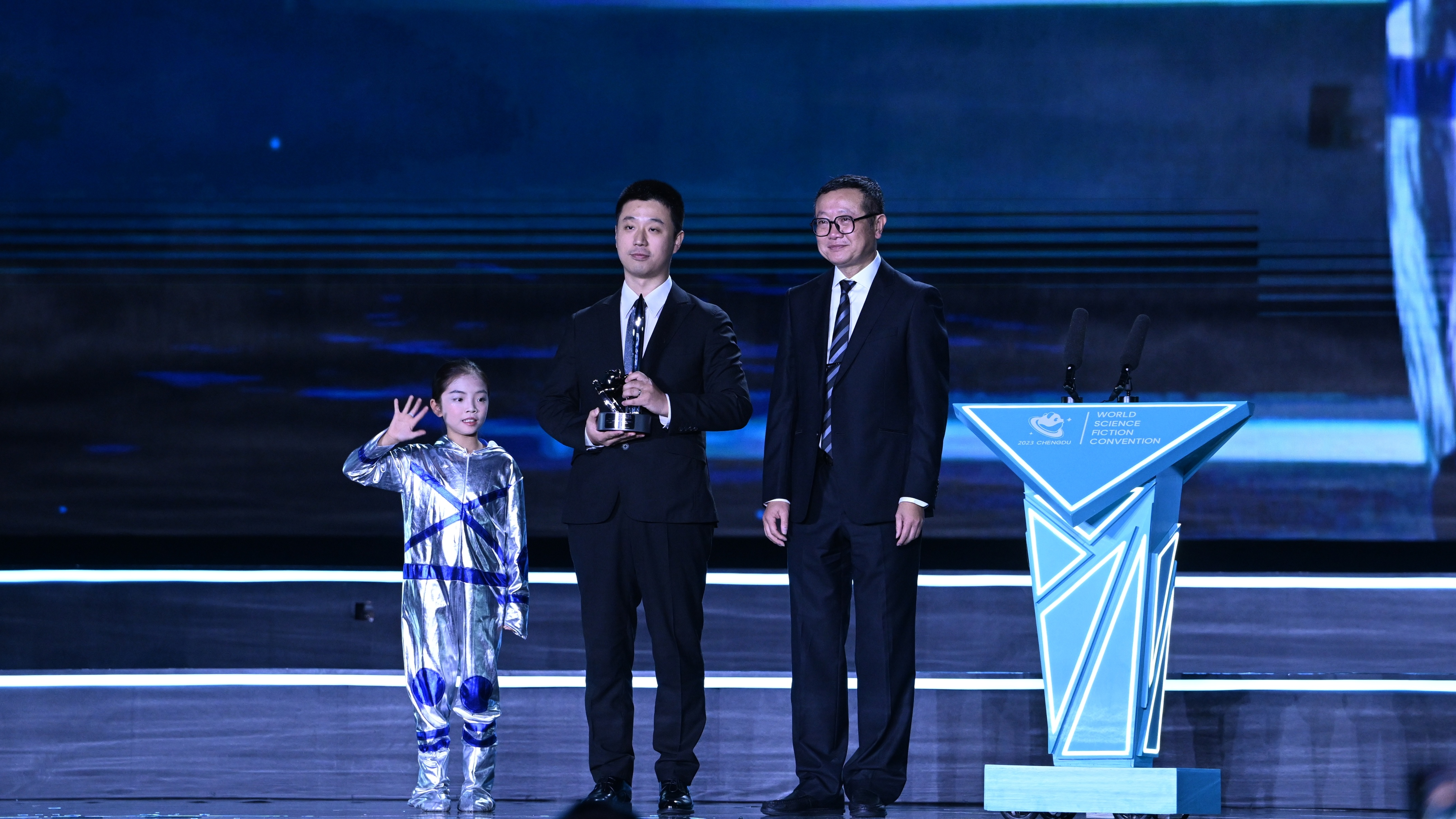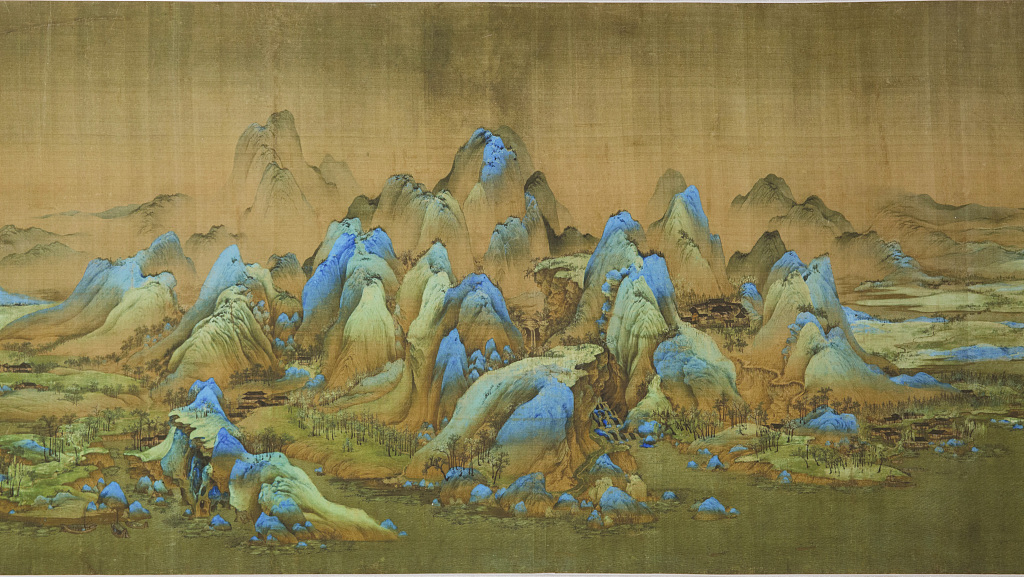01:17

"The Space-Time Painter," written by Chinese writer Hai Ya, won the Hugo Award for Best Novelette at the 81st World Science Fiction Convention (WorldCon), held in the southwestern Chinese city of Chengdu.
Hai became the third Chinese winner of the Hugo Award, following sci-fi writers Liu Cixin and Hao Jingfang.
"The Space-Time Painter" was published in 2022. It was inspired by the life experience of the talented Chinese painter Wang Ximeng during the Northern Song period (960-1127), who created the 12-meter-long landscape painting "One Thousand Li of Rivers and Mountains."

A portion of "One Thousand Li of Rivers and Mountains" by Wang Ximeng, a Chinese painter during the Northern Song period. /CFP
A portion of "One Thousand Li of Rivers and Mountains" by Wang Ximeng, a Chinese painter during the Northern Song period. /CFP
It tells a story about the political power struggle of the time combined with diverse elements such as Chinese traditional culture, history, deduction and science fiction.
Hai shared his source of inspiration of creating the award-winning book at a press conference after the award ceremony.
"I watched a program of China Media Group named 'National Treasure Archive' and the detailed information of the painter of 'One Thousand Li of Rivers and Mountains' was introduced, which interested me," he said, adding that the painter was a gifted young man but was never seen again in history, which is a concept that could be explored with science-fiction.
In this story, Hai did his best to balance the relationship between story, characters and history, hoping to bring readers a mature work. He said that although not a big category, historical sci-fi has always been there.
"There are definitely differences between historical sci-fi and hard sci-fi or engineering sci-fi in terms of their themes and emphasis," said the award winner. "I think it will work for any subject's adaption and casting if you do it with the reverence for technology and science."

Chinese sci-fi writer Hai Ya (center) holds his award-winning book, "The Space-Time Painter," at the 81st World Science Fiction Convention in Chengdu, October 21, 2023. /CGTN
Chinese sci-fi writer Hai Ya (center) holds his award-winning book, "The Space-Time Painter," at the 81st World Science Fiction Convention in Chengdu, October 21, 2023. /CGTN
Hai, also a financial worker, thinks himself more of a sci-fi enthusiast than a writer.
"I write while doing my job, so I have very little time to write every day," he said. "But I think as long as I love it and am willing to put efforts in it, I will see hopes and the dawn."
The Hugo Awards are the most prestigious awards of science fictions. It was first presented in 1953 and presented annually since 1955. The Hugo Awards are voted on by members of the World Science Fiction Convention, which is also responsible for administering them.
WorldCon has taken place annually since 1939 (except during WWII from 1942 to 1945). The 81st WorldCon is the first time the world's largest and longest-running sci-fi gathering has come to China.
(CGTN's Xu Beibei also contributed to the story.)